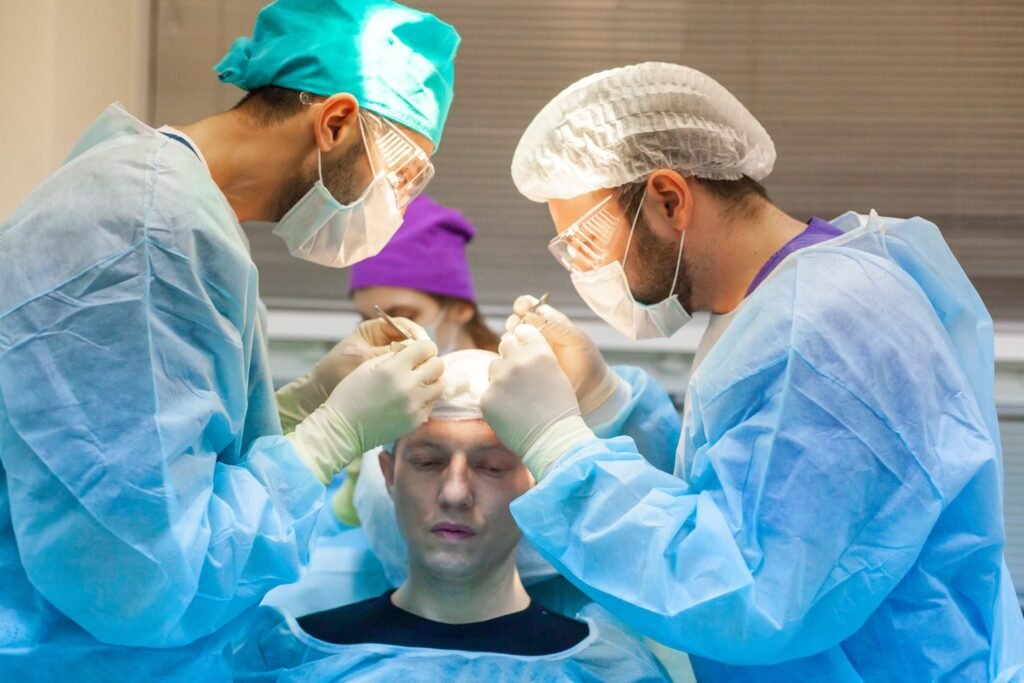Hair transplant surgery in Korea is known for its advanced techniques and natural-looking results. However, if you are taking blood thinners, it’s crucial to have an open and thorough discussion with your doctor before undergoing any hair restoration procedure. Blood thinners can significantly affect surgical outcomes, so proper planning and communication are essential for safety and success.
Why Blood Thinners Matter in Hair Transplant Surgery
Blood thinners—such as aspirin, warfarin, clopidogrel (Plavix), or newer anticoagulants like rivaroxaban (Xarelto)—are commonly prescribed to reduce the risk of blood clots, heart attacks, and strokes. While effective for cardiovascular health, these medications also interfere with the body’s ability to clot, which is a critical factor in any surgical procedure, including hair transplantation.
Potential Risks Include:
- Increased Bleeding During Surgery: Excessive bleeding can obscure the surgical field, making follicle extraction and implantation more difficult and less precise.
- Prolonged Healing Time: Delayed clotting can affect wound healing, leading to longer recovery times.
- Higher Risk of Graft Loss: Poor blood clotting may compromise graft survival, reducing the overall success of the transplant.
- Bruising and Swelling: These side effects can be more severe in patients on blood thinners.
What to Discuss with Your Doctor in a Korean Clinic
Korean hair transplant clinics are highly experienced, but your full medical history must be disclosed for safe treatment. Here are key discussion points:
1. List All Medications
Provide a complete list of your medications, including over-the-counter supplements and herbal remedies. Many patients overlook common drugs like:
- Aspirin
- Ibuprofen
- Fish oil
- Vitamin E
- Ginkgo biloba
2. Consult with Your Cardiologist or Prescribing Physician
Your hair transplant surgeon may need to collaborate with your cardiologist or primary care doctor. Do not stop blood thinners without medical guidance. Stopping these medications abruptly can lead to serious complications such as heart attack or stroke.
3. Alternative Options and Timing
In some cases, your medical team may advise you to:
- Temporarily stop or adjust your medication under supervision.
- Delay the hair transplant until it’s safer.
- Use local anesthesia techniques that minimize bleeding risk.
- Consider non-surgical options like PRP (Platelet-Rich Plasma) therapy, especially if surgery is not advisable.
4. Preoperative Instructions
Your Korean clinic may recommend:
- Blood tests to check clotting time (e.g., PT/INR, aPTT)
- Avoiding alcohol and caffeine before surgery
- Stopping certain supplements at least 7–10 days in advance
5. Postoperative Care
If you’re on blood thinners, your postoperative care will likely require:
- Close monitoring for signs of bleeding or infection
- Special wound care instructions
- Scheduled follow-ups to check healing progress
Why Choose a Korean Hair Transplant Clinic?
Korea is a global leader in hair restoration surgery, offering:
- Minimally invasive techniques such as FUE (Follicular Unit Extraction)
- Microscopic precision for natural-looking results
- Bilingual medical staff to ensure smooth communication
- High standards of patient safety and hygiene
Reputable clinics in Seoul and other major cities often have experience managing patients on complex medication regimens, including blood thinners.
Final Thoughts
Hair transplantation is generally safe, but if you’re taking blood thinners, careful planning is critical. Your doctor needs to understand your full medical history to balance surgical success with your overall health. Never stop or adjust medication on your own. Always consult a qualified surgeon in Korea who is experienced in dealing with such medical complexities.




